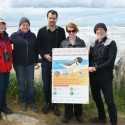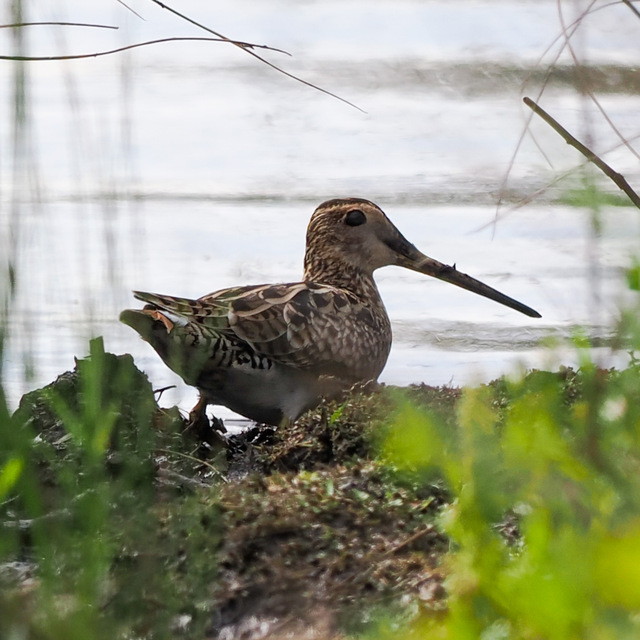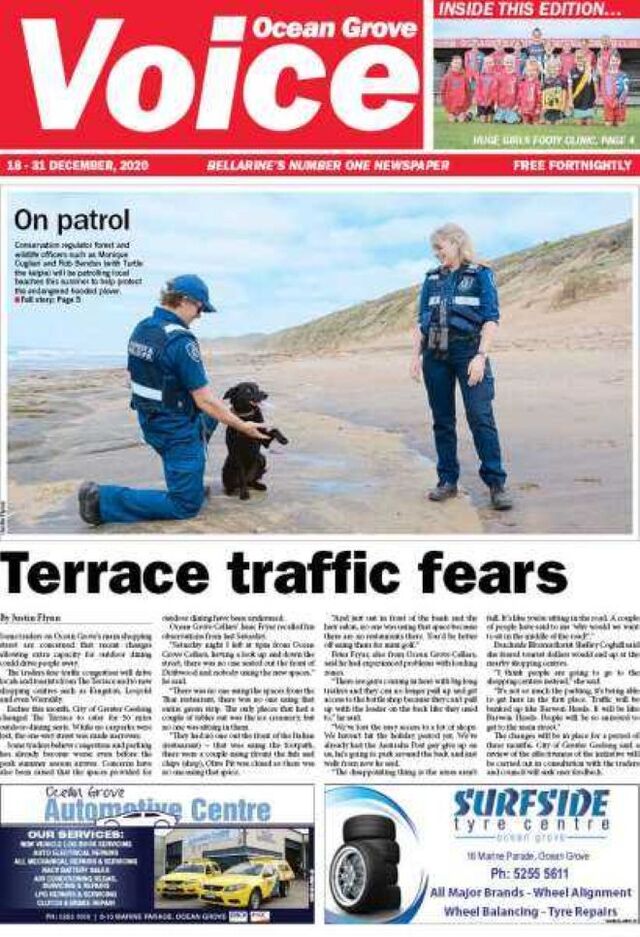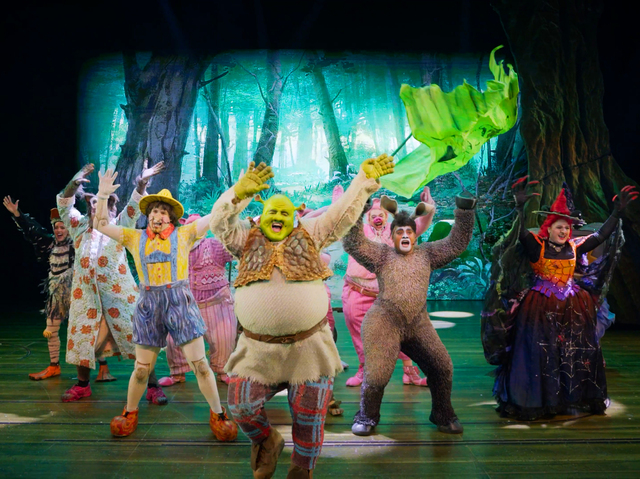By Justin Flynn
Ocean Grovers are being encouraged to befriend the resilient little hooded plover this nesting season.
The endangered bird, which nests all along the Bellarine and Surf Coast, has been upgraded to the ‘vulnerable’ category amid obstacles such as habitat destruction and predators.
And there’s a lot you can do to help.
Australian Birdlife magazine editor and former national birdwatching champion Sean Dooley was at Ocean Grove Main Beach to help promote Plover Appreciation Day on 16 September.
Dooley said there was plenty that locals could do to help protect this vulnerable species.
“The really important thing is to give them space,” he said.
“The volunteers do a great job in locating the nests and monitoring them. They have so much going against them, and they’re up against it right from the start. You’ve got to admire their courage. The main issue for the public is to have their dogs on a lead near the habitats. The public must respect that.”
The hooded plover breeds from September to around February or March. The first hooded plover nest of the season at Ocean Grove was unsuccessful.
“This is such an important stretch of coastline,” Dooley said.
“It is the most vital stretch for the survival of the species. A cultural shift in people’s awareness needs to happen. You need an entire community to be proud of these birds and own them.”
Hooded plovers are particularly vulnerable to dog attacks, foxes, weather conditions and other birds. In the face of adversity, the adult will run to distract the danger from their chicks, leaving their young isolated to the summer heat and other predators, even silver gulls and ravens.
“Adult chicks can tell the difference between a dog on a lead and a dog running free,” Friends of the Hooded Plover volunteer Andrea Dennett said.
“They see a dog on a lead and they don’t stress as much and don’t run to leave the chicks vulnerable. They really are a little Aussie battler.”
“People think that wildlife exists solely in the bush or forest, but we’re trying to change the mindset to people that there is so much wildlife on the beaches,” fellow volunteer Jennie Turner said.
“If you observe them closely and consistently, you’ll get to know their individual traits, which begin as they adapt as creatively as possible,” volunteer John Murray said.
“You can see their little minds thinking.”
Anyone wishing to help save the hooded plover can check out www.birdlife.org.au/beach. Beachgoers will be made aware of plover nests by volunteers this nesting season.









